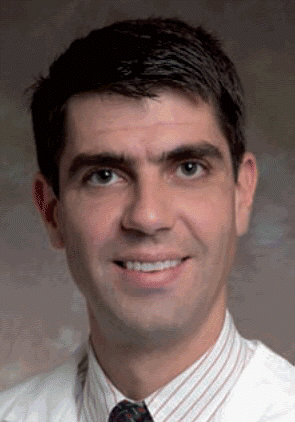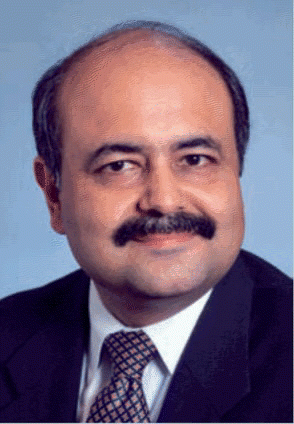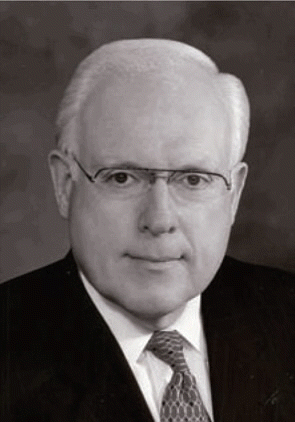In response to many national calls to enhance patient safety, the Accreditation Council for Graduate Medical Education (ACGME) mandated a maximum 80-hour workweek for all residents beginning in 2003. Traditionally, surgical programs have been the most grueling residencies, incorporating workweeks that often reached 100 to 120 hours. Because otolaryngology-head and neck surgery is both an operative and office-based specialty, the 80-hour workweek may have a different impact than in other surgical specialties, such as neurosurgery and cardiac surgery. But the impact on all residency training is important to consider.
Explore This Issue
November 2008Background of Work Hour Regulations
The concept of work-hour restriction has been rapidly developing in the medical education community over the past two decades, but a big jolt forward resulted as a response to a particular legal case in New York State when a grand jury investigation, launched after the death of 18-year-old Libby Zion, determined that the long hours of often unsupervised interns and residents was a contributing factor. In 2003, after much internal dialog and review, the ACGME introduced explicit regulations for residency training, designed to ensure that residents were sufficiently rested when caring for patients (see sidebar, page 8).1 These guidelines include criteria that are monitored by the ACGME, and violations bring risk for institutions’ loss of their residency program accreditation.
Advantages of Regulations
Prior to the mandate for restriction, there were no compelling data showing that decreasing work hours would result in greater patient safety and better care. Since 2004, a variety of studies conducted at several large academic health centers have generally shown no worsening of patient outcomes, some possible improvements, and mixed results on any mortality benefit associated with duty-hour restrictions.2-10 However, it is difficult to predict whether these results will endure and be similar across all institutions and in all settings. This underscores the need for further investigation.
Trainees’ quality of life has shown general improvement, as revealed by surveys and self-reports.5 Michael M. Johns III, MD, Director of the Emory Voice Center and Assistant Professor in the Department of Otolaryngology at Emory University in Atlanta, became interested in the subject of the work-hour restrictions when researching burnout in otolaryngology residents.11 Burnout is characterized by high levels of emotional exhaustion and depersonalization, and a low level of personal accomplishment. Particularly worrisome is depersonalization and the tendency to treat colleagues and patients as inanimate objects. In this study, Dr. Johns and his colleagues used the validated Maslach Burnout Inventory to measure and quantify the effects of burnout to common stressors in 684 resident responders before and after implementation of the 80-hour restriction. Burnout was extremely common among otolaryngology residents, with high or moderate levels reported by 86%. The work-hours variable was the strongest associated demographic factor with burnout, and those working more than 80 hours had the highest levels. With 8% reporting violations of the ACGME work-hour limitations, the researchers concluded that adherence to the 80-hour workweek may in fact help prevent burnout and its consequences.
 Both private and public payers need to recognize the importance of academic health centers in training the physicians of tomorrow. It is more expensive to operate academic health centers with teaching programs, and payer reimbursement should be commensurately higher to account for this.
Both private and public payers need to recognize the importance of academic health centers in training the physicians of tomorrow. It is more expensive to operate academic health centers with teaching programs, and payer reimbursement should be commensurately higher to account for this.-Michael M. Johns III, MD
Problems and Questions Still to Be Answered
Despite some generational differences among physicians, a new paradigm that respects the trainee’s leisure and family time is generally accepted as valid and important. Although most providers agree that a reduction of training hours is probably needed, there is no scientific justification that 80 is the magic number of hours that will still ensure excellent training and patient care. Educators voice concerns that the restrictions cut to the heart of the culture of surgery.12 Deliberate practice over time has been shown to be key to competency in technical fields such as surgery.13 If a resident is in the operating room, and must leave or risk a work-hour violation for the institution, he or she misses the opportunity to learn a procedure. This also puts the resident in a precarious position when the resident must decide whether to risk a violation or miss an important education and training experience. Residents may be punished for their professionalism in completing the work at hand. Another problem is that the work-hour restrictions are not being universally monitored in a standard format and documentation is inconsistent across various residency programs.
 Are we training residents appropriately regarding professionalism and patient care responsibilities, or are we moving toward training them as shift workers, regardless of patients’ needs?
Are we training residents appropriately regarding professionalism and patient care responsibilities, or are we moving toward training them as shift workers, regardless of patients’ needs?-Ajit K. Sachdeva, MD
There is insufficient flexibility built into the work-hour restrictions that would allow individual residents and supervising faculty to decide when resident fatigue will affect performance, said Ajit K. Sachdeva, MD, Director of the Division of Education at the American College of Surgeons and Adjunct Professor of Surgery at Northwestern University Feinberg School of Medicine in Chicago.
In addition, although the ACGME has defined time off as a period free from all residency training requirements, including clinical, administrative and educational activities, there is no clear way to ascertain whether trainees are truly using these free periods to rest or are engaged in other professional activities, such as moonlighting.
New models have been proposed and implemented to comply with work-hour restrictions, and the need to meet the new regulations has steered residency programs to explore a variety of creative approaches. These include a day-float or night-float system, recruiting physician extenders, increasing cross-coverage of patients, eliminating or streamlining services, better using information technology, and requests to the residency review committees to increase the resident complement.12 Some residents have been pulled from clinical sites to cover patient care responsibilities, or senior residents have had been asked to pick up slack for junior residents. Also, attending physicians have often needed to fill in the gaps. The selection of different models has been based on local factors, availability of resources, and the nature of the clinical service, said Dr. Sachdeva. But regardless of the model that is selected, unless the entire educational program is restructured with different educational approaches and interventions, the residents may not receive the requisite education and training.12, 14

The financial costs engendered by these restrictions are significant and, for the most part, not compensated. These costs include the necessity of hiring additional physician extenders that many institutions cannot afford.
Another big question, said Dr. Sachdeva, is: Are we training residents appropriately regarding professionalism and patient care responsibilities, or are we moving toward training them as shift workers, regardless of patients’ needs?
Although there may be some gains in patient safety from the work-hour restrictions, this might also be offset by the inherent dangers in increasing the number of transfers of care. Gerald B. Healy, MD, Chief of Otolaryngology at Children’s Hospital in Boston, pointed out that in his institution, five different residents may handle the patient’s care from initial diagnosis to post surgical discharge, leading to what may well be piecemeal education, reduced continuity of care, and increased risk for error and consequent adverse events. There is one fundamental question that has to be answered in this whole paradigm, said Dr. Healy. If you are a patient coming to me for care, are you better off being taken care of by a well-rested doctor who is not very familiar with your case, or by a fatigued doctor who is very familiar with your case?
ACS Position and Recommendations
The American College of Surgeons (ACS) appointed a special Task Force on the 80-hour workweek, under the leadership of L. D. Britt, MD, MPH, now Chair of the ACS Board of Regents. The ACS Task Force reviewed the available evidence relating to this subject and made the recommendation that the impact of the 80-hour workweek needs to be comprehensively studied before any further reductions in work hours are considered.
An in-depth national study needs to be conducted to distinguish the effects of fatigue points, said Dr. Healy, the current President of the ACS, and the first otolaryngologist to hold that position. We know that fatigue points differ between individuals, and medical providers may not fatigue as easily as surgeons due to physicians’ ability to accomplish tasks in ways other than in direct patient care.15
According to Dr. Johns, There are potential loopholes in the 80-hour workweek as it pertains to otolaryngology programs. Most otolaryngology residents take home call, which does not count toward total duty hours unless they are physically called into the hospital. However, residents may be paged numerous times throughout the night, disrupting sleep.
Outside the United States, otolaryngology and other surgery and medical specialties are likewise engaged in these ongoing discussions. At end of the pipeline, said Dr. Sachdeva, it is imperative to scrutinize the knowledge and skills of residents graduating from training programs with fewer work hours than in the US and their preparation for independent practice.
 An in-depth national study needs to be conducted to distinguish the effects of fatigue points. We know that fatigue points differ between individuals, and medical providers may not fatigue as easily as surgeons due to physicians’ ability to accomplish tasks in ways other than in direct patient care.
An in-depth national study needs to be conducted to distinguish the effects of fatigue points. We know that fatigue points differ between individuals, and medical providers may not fatigue as easily as surgeons due to physicians’ ability to accomplish tasks in ways other than in direct patient care.-Gerald Healy, MD
To produce the same product-that is, the competent and skilled surgeon-there would be no choice but to lengthen the duration of training, and that presents several huge problems. Funding is one. Longer training time, especially for subspecialties, would also lead to workforce shortages and to discouraging bright people from entering surgical specialties.
The IOM is currently reviewing data and receiving input from physicians and surgeons across the country as well as abroad. The ACS has distributed its report widely to all department chairs, program directors, CEOs, and specialty societies. The response has been extremely positive and readers appreciate the balanced view that is presented.
A well-organized national study with multiple arms conducted in multiple centers must be undertaken to truly answer some of these questions, said Dr. Healy. Without addressing these issues scientifically, we are jerry-rigging an old system to fit new needs.
In addition, said Dr. Johns, Both private and public payers need to recognize the importance of academic health centers in training the physicians of tomorrow. It is more expensive to operate academic health centers with teaching programs, and payer reimbursement should be commensurately higher to account for this.
ACGME Restrictions on Resident Work Hours
- Limitations of duty hours to 80 hours per week (an average for a four-week period; possible increase after approval by the Residency Review Committee)
- One day free in seven (averaged over four-week period)
- In-house call no more frequently than every third night (averaged over four-week period)
- 24-hour limit of on-site duty (with up to six-hour extension for certain activities)
- No new patients may be accepted after 24 hours of continuous duty
- Minimum 10 hours rest break between duty periods
- Callbacks to hospital during at-home call must be counted
References
- Accreditation Council for Graduate Medical Education. Report of the ACGME Work Group on Resident Duty Hours. Chicago, 2002.
[Context Link] - Brunworth JD, Sindwani R. Impact of duty hour restrictions on otolaryngology training: divergent resident and faculty perspectives. Laryngoscope 2006;116:1127-30.
[Context Link] - Chandra RK. The resident 80-hour workweek: how has it affected surgical specialties? Laryngoscope 2004;114:1394-8; discussion 19.
[Context Link] - Gelfand DV, Podnos YD, Carmichael JC, Saltzman DJ, Wilson SE, Williams RA. Effect of the 80-hour workweek on resident burnout. Arch Surg 2004;139:933-40.
[Context Link] - Hutter MM, Kellogg KC, Ferguson CM, Abbott WM, Warshaw AL. The impact of the 80-hour resident workweek on surgical residents and attending surgeons. Ann Surg 2006;243:864-71; discussion 71-5.
[Context Link] - Kupferman TA, Lian TS. Implementation of duty hour standards in otolaryngology-head and neck surgery residency training. Otolaryngol Head Neck Surg 2005;132:819-22.
[Context Link] - Parthasarathy S. Implementation of the 80-hour work-week limitation for residents has improved patient care and education. J Clin Sleep Med 2006;2:14-7.
[Context Link] - Reiter ER, Wong DR. Impact of duty hour limits on resident training in otolaryngology. Laryngoscope 2005;115:773-9.
[Context Link] - Volpp KG, Rosen AK, Rosenbaum PR, et al. Mortality among patients in VA hospitals in the first 2 years following ACGME resident duty hour reform. JAMA 2007;298:984-92.
[Context Link] - Volpp KG, Rosen AK, Rosenbaum PR, et al. Mortality among hospitalized Medicare beneficiaries in the first 2 years following ACGME resident duty hour reform. JAMA 2007;298:975-83.
[Context Link] - Golub JS, Weiss PS, Ramesh AK, Ossoff RH, Johns MM, 3rd. Burnout in residents of otolaryngology-head and neck surgery: a national inquiry into the health of residency training. Acad Med 2007;82:596-601.
[Context Link] - Sachdeva AK, Bell RH, Jr., Britt LD, Tarpley JL, Blair PG, Tarpley MJ. National efforts to reform residency education in surgery. Acad Med 2007;82:1200-10.
[Context Link] - Sachdeva AK. Acquiring skills in new procedures and technology: the challenge and the opportunity. Arch Surg 2005;140:387-9.
[Context Link] - Sachdeva AK. Surgical education to improve the quality of patient care: the role of practice-based learning and improvement. J Gastrointest Surg 2007;11:1379-83.
[Context Link] - Ericsson KA. Deliberate practice and the acquisition and maintenance of expert performance in medicine and related domains. Acad Med 2004;79(10 Suppl):S70-81.
[Context Link]
©2008 The Triological Society
Leave a Reply